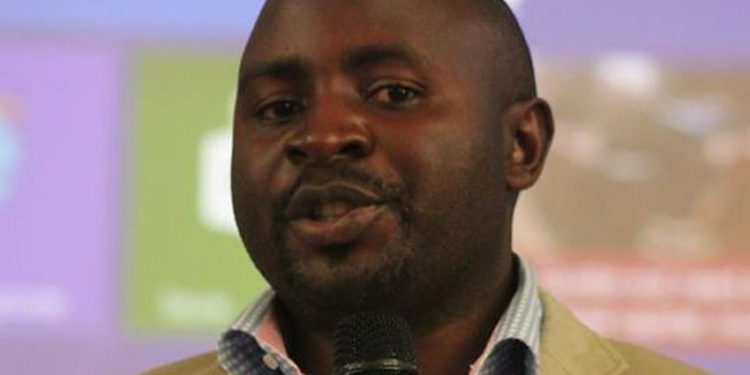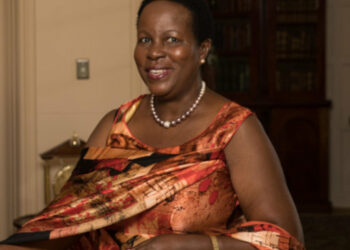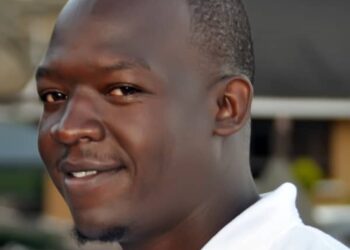In the late 1980s and throughout the 1990s, many parents simply needed to visit a sick relative or neighbor with their teenage offspring. The dying sick person sent a clear message to the teenager that you either get away from sexual activities or you are next. HIV/AIDS was rampaging the entire country. Kampala dwellers were being shipped from the city to their ancestral homes to die!
If the parents didn’t warn you with that image of a dying person on a deathbed in the living room that you accompanied them to visit, Bakayimbira Dramactors’ Ndiwulira drama was being reenacted in your school. If you couldn’t act, you may have been drafted into a school choir to sing Philly Bongoley Lutaaya’s Alone and Frightened, the undisputed HIV/AIDS anthem. If you did none of that, you were forced to watch the music dance and drama about HIV/AIDS. There was no escaping.
These efforts by people like Philly Lutaaya, Norine Kaleeba of TASO and many others earned Uganda constant accolades in the fight against the HIV/AIDS scourge and saved millions of people from death.
HIV/AIDS is still here with us but not in the scary form of the 1980s and 1990s. Many of the young people today have never seen and will never have that image of an unrecognizable dying person, slim like a telephone pole, and waiting for their death. The epidemic has matured thanked to early awareness and advancements in treatment, some of which has been invented by our experts at the school of public health in Makerere.
As a kid growing up in those turbulent times, I was reminded of this weeks back when teenagers rub-dubbing (read dancing) on a bus was mistaken to be some lewd sexual activity. It was simply youthful exuberance — dancing and enjoying a trip back to school from a study tour. But the reaction on social media also reminded me of how far we have come from the 1980s and 1990s where parents talked to their children about their sexuality. Before, many cultures had instituted platforms like the Ssengas and Kojjas in Buganda where elders talked to their nieces and nephews respectively about their sexuality.
There have been some efforts led by some development organisations to teach kids about their sexuality in schools but every time the topic is brought up, moralists and those high on some religious octane misinterpret it as “teaching kids sex.” Sexuality education is not to teach teenagers how to have sex rather to be mindful of the choices they are making. The truth is teenagers are out there having sex, like the millions we saw during the Covid-19 lockdowns that ended up pregnant.
Pregnancy in most of Africa denies a child, especially the girl, the opportunity to finish school as they become mothers when they aren’t even ready to take care of themselves in the first place. Some of the boys responsible for pregnancy end up in prison or abandoning school in fear of getting arrested. In many societies, they are burdened with responsibilities beyond their means to pay for bride price and then looking after children they didn’t plan to have.
Yet studies show that for every additional year of secondary education, one earns between 15% and 20% more. A report titled Secondary Education in Africa by the Mastercard Foundation reveals that the highest education level the majority of Africans will ever attain is secondary. So if kids are dropping out of school before they even finish their secondary education, it means the continent will lose an economic dividend that we would have gained had the majority of people finished their secondary level education. Of course, secondary education must be relevant to these kids to address the challenges of our time among which is information on sexuality, delayed pregnancy, and of course the skills necessary for the 21st century economy in which we live.
I have been to many parts of Uganda and interacted with teenage mothers and their equally young parents (30-year old grandparents) and almost all of them tell me that they wish they had continued with school and how they wish to go back.
Unless we stop burying our heads in the sand like the proverbial ostrich and confront the issue of children’s sexuality with the knowledge they need to make informed decisions, we will continue having teenage parents and many contracting HIV/AIDS. Like we did with HIV/AIDS in the 1980s and 1990s, religiosity and morality should take a back seat so that we empower teens with the information they need to make informed decisions. That way we can develop our country sustainably.
See you at the Kabaka Birthday Run this Sunday so that you help create HIV/AIDS awareness in a bid to end this scourge before 2030.
The writer is a communication and visibility consultant. djjuuko@gmail.com
Do you have a story in your community or an opinion to share with us: Email us at editorial@watchdoguganda.com













